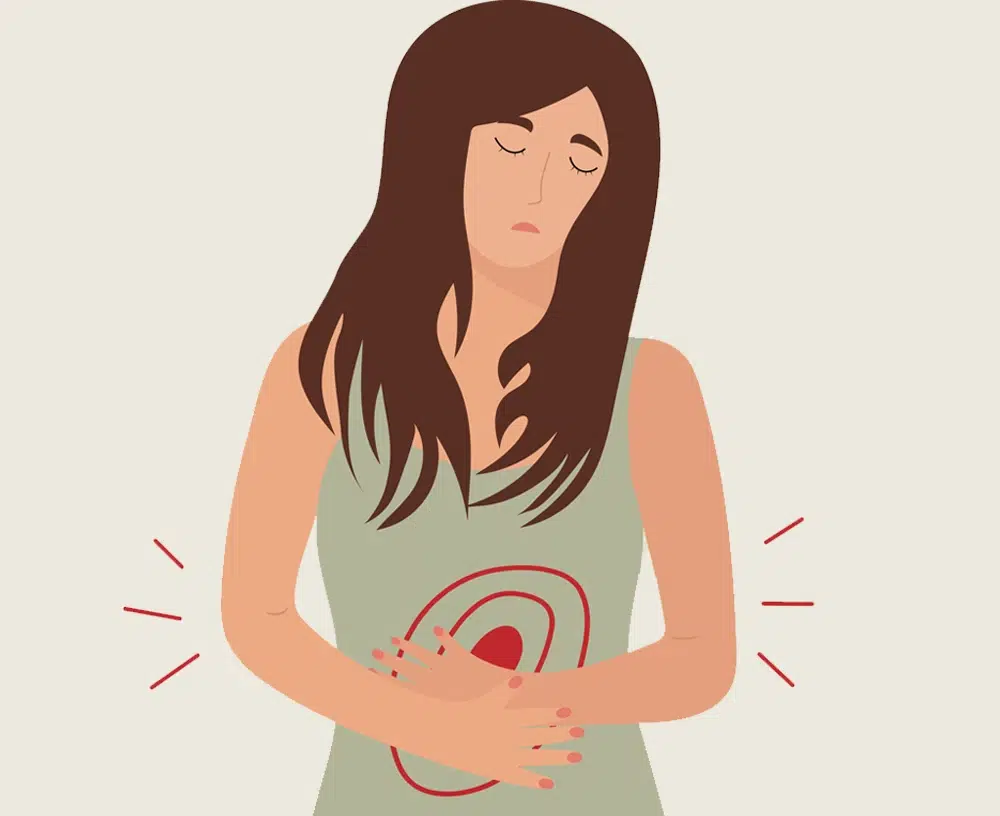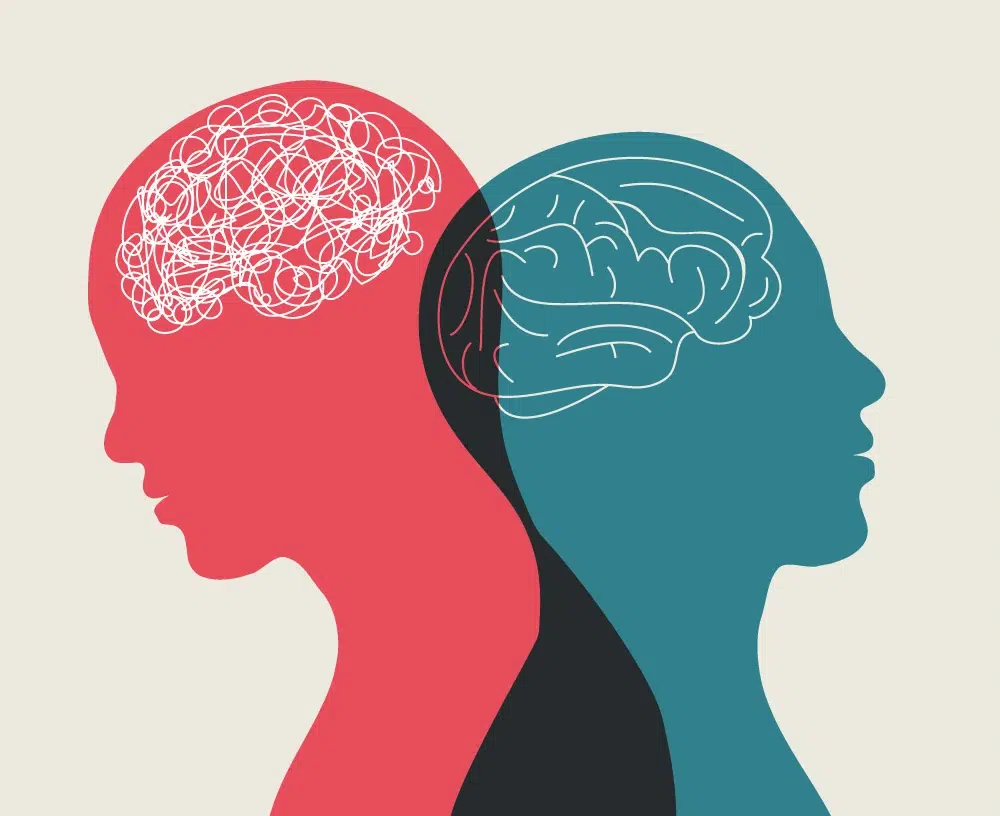Everything You Need to Know About Hunger and Your Health
We know that food and water are essential to life and that the effects of hunger can lead to very serious health consequences or even be fatal. But hunger can also damage your body before it becomes a life-or-death situation. We often picture bony frames and bulging stomachs when we think of hunger, but the truth is that hunger is not something we can always see with our eyes. Anyone with any body size can be facing hunger.
Read on to learn how hunger affects your physical and mental health, leads to malnutrition, and who is at risk for malnutrition.
How Does Hunger Affect Your Body?
If you are taking in fewer calories than you need to function, you are experiencing starvation. This can happen if food intake is severely restricted or if your body cannot properly digest food to absorb nutrients. When your body is continually deprived of calories, it will start to adjust to expend less energy than it usually does.
Over time, a severely restricted food intake can reduce your lifespan.
Additionally, being underweight, which is defined as having a body mass index (BMI) below 18.5, is associated with malnutrition and a range of health conditions that can lower your life expectancy. These conditions include reduced immune system function, digestive conditions, and cancer.
When you eat, your body breaks down food into glucose, and glucose gives you energy. When you have not eaten for 24 hours and your glucose storage has been depleted, your body will begin to convert glycogen from your liver and muscles into glucose. If you go two days without food, both your glucose and glycogen are depleted, and your body will begin to break down muscle tissue to provide energy.


Effects of Hunger on the Body
To prevent excessive muscle loss, your body will start relying on fat stores to create ketones for energy, a process known as ketosis. Once all your fat stores have been metabolized, your body will revert back to breaking down muscle tissue for energy. If you reach this stage of starvation, you will start to experience severe adverse symptoms.
The effects of malnutrition may include:
- faintness
- dizziness
- cognitive changes
- low blood pressure
- slow heartbeat
- weakness
- dehydration
- changes in thyroid function
- abdominal pain
- electrolyte imbalances
- heart attack
- organ failure
Long-Term Effects of Hunger
People who have experienced starvation or a very restricted food intake may have long-term effects, including:
- stunted growth
- poor bone health or osteoporosis
- post-traumatic stress or depression
How Does Hunger Affect Your Mental Health?
Dealing with hunger can be very stressful. Constantly worrying about where your next meal will come from can lead to mental health problems such as depression, anxiety, and even post-traumatic stress disorder (PTSD). According to the American Academy of Pediatrics, mothers with school-aged children who face severe hunger are 56.2% more likely to have PTSD and 53.1% more likely to have severe depression. Facing hunger and caring for people who are facing hunger can have serious impacts on your mental health.

How Hunger is Related to the Risk of Chronic Diseases?
There is a connection between hunger and chronic diseases like high blood pressure, heart disease, and diabetes, according to the USDA. In fact, 58% of the households that receive food from the Feeding America network have one member with high blood pressure, and 33% have a member with diabetes.
The more you experience hunger and a restricted food intake, the more likely you are to experience negative effects on your mind and body.
The Relationship Between Hunger and Malnutrition
Hunger is the body’s signal that it needs food. Once you’ve eaten enough, the feeling of hunger goes away until your stomach is empty again. Chronic hunger and starvation over the long term can lead to malnutrition. Malnutrition occurs when you lack the nutrients needed for proper health and development. You can be malnourished for a long or short period of time, and the condition can be mild or severe, or even fatal. People who are malnourished are also more likely to get sick. But even people who have enough to eat can experience malnutrition if they’re not eating foods that provide the right nutrients, vitamins, and minerals.
There are also diseases and conditions that can prevent people from digesting food and absorbing nutrients properly. For example, kids with cystic fibrosis have difficulty absorbing nutrients because the disease affects the pancreas, an organ that normally produces enzymes necessary for digestion. If you don’t get enough of a specific nutrient, you have a nutritional deficiency, a form of malnutrition. The most common nutritional deficiency in the world is iron deficiency, which can lead to anemia.


Who Is At Risk of Malnutrition?
All over the world, people who are poor or live in poverty-stricken areas are most at risk for hunger and malnutrition. In less developed countries, wars and natural disasters can also contribute to hunger and malnutrition by disrupting normal food production and distribution. Malnutrition affects people of all ages, but infants, children, and teens may suffer the most because many nutrients are critical for normal growth and development. Older people may develop malnutrition because of illnesses and other factors that lead to a poor appetite. People who are addicted to drugs or alcohol can be malnourished or underweight because these substances interfere with the body’s ability to absorb nutrients.
People who are addicted to drugs or alcohol can be malnourished or underweight because these substances interfere with the body’s ability to absorb nutrients.
Symptoms of malnutrition may include:
- fatigue (tiredness) and low energy
- dizziness
- poor immune function
- dry, scaly skin
- swollen and bleeding gums
- decaying teeth
- slowed reaction times and trouble paying attention
- underweight
- poor growth
- muscle weakness
- bloated stomach
- problems with organ function
- problems learning
- osteoporosis, or fragile bones that break easily
Find Food Assistance Near You
Anyone can face hunger and a lack of access to food, but there are resources available to help. My Pantry Express provides food assistance to seven counties in Northern Illinois. We strive to make food accessible to as many people as we can. If you are in need of food assistance, you can pick up free groceries at a location near you or have them delivered to your home. You can place your order online at a location and time that works for you.




